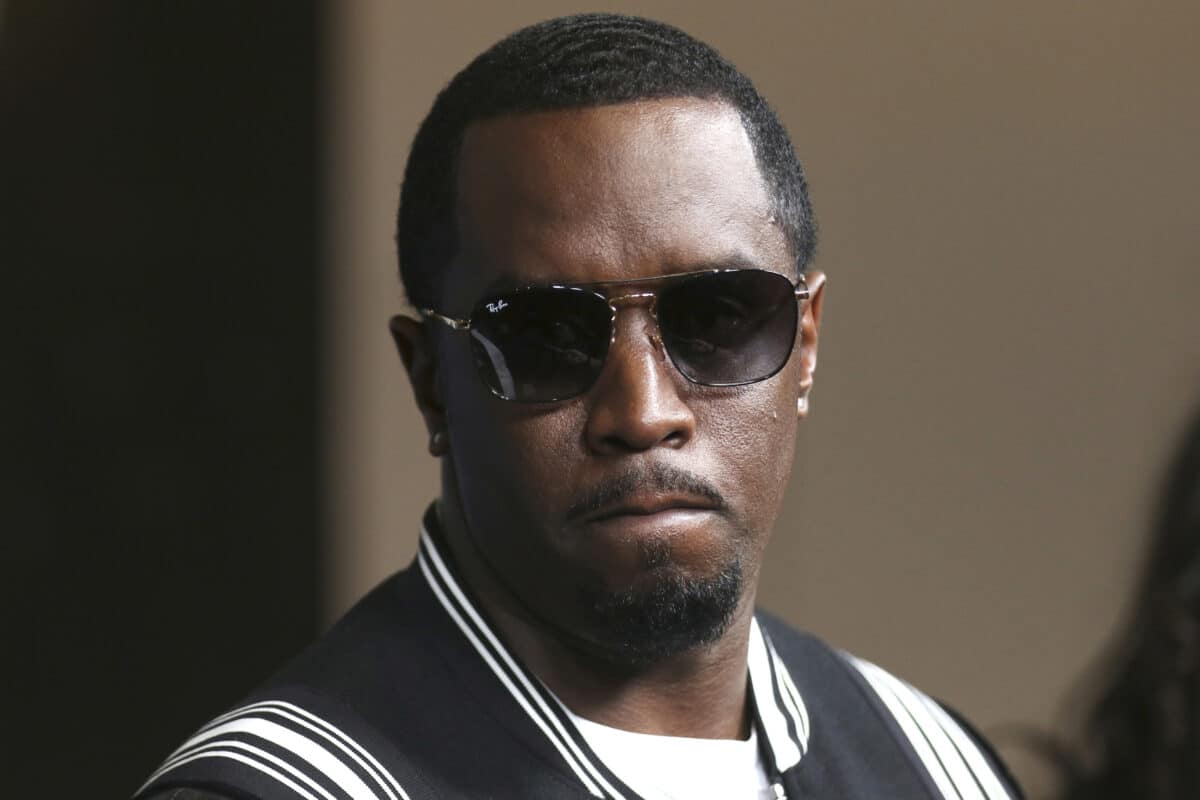
Sean “Diddy” Combs arrives at the LA Premiere of “The Four: Battle For Stardom” at the CBS Radford Studio Center on May 30, 2018, in Los Angeles. (Photo by Willy Sanjuan/Invision/AP, File)
NEW YORK — A singer who achieved success in bands put together by Sean “Diddy” Combs has sued the music producer, describing years of psychological and physical abuse, including groping, that she says she suffered as he helped launch her career.
With her lawsuit filed Tuesday, Sept. 10, in Manhattan federal court, Dawn Richard added her voice to those now saying the music mogul subjected the people around him to an explosive temper, violent threats, and sexually charged and drug-fueled environments as they tried to follow his orders.
Richard, who became more widely known after appearing on the MTV reality show “Making the Band,” is suing for unspecified damages as well as millions of dollars in income that she says she was denied. She argues that damages, including punitive, are warranted because she suffered economic harm, physical injury, pain and suffering, and serious psychological and emotional distress.
Combs’ representatives said in a statement that Combs was “shocked and disappointed” by the lawsuit. They said Richard was making “an attempt to rewrite history” by manufacturing “a series of false claims all in the hopes of trying to get a pay day — conveniently timed to coincide with her album release and press tour.”
They added that if her experience was so negative, Richard would not have continued working directly with Combs for so long, including returning in 2020 for a “Making the Band” reboot and agreeing to be featured on “The Love Album” last year.
“It’s unfortunate that Ms. Richard has cast their 20-year friendship aside to try and get money from him, but Mr. Combs is confidently standing on truth and looks forward to proving that in court,” they said.
According to the lawsuit, Richard witnessed Combs repeatedly abuse his girlfriend and endured threats that caused her to fear for her life as Richard worked on songs, often with no food or sleep for a day or two at a time, while becoming known in music circles as a member of the girl group Danity Kane and later as a member of Combs’ band Diddy — Dirty Money.
She says in the lawsuit that Combs regularly exploded in rage, hurling cellular phones, laptops, food and studio equipment across the room or at people. At other times, the lawsuit says, Richard witnessed him choking and strangling his protege and longtime girlfriend, Casandra “Cassie” Ventura. The events occurred from 2004 through 2011, according to the suit.
Dawn Richard arrives at the 66th annual Grammy Awards on Sunday, Feb. 4, 2024, in Los Angeles. (Photo by Jordan Strauss/Invision/AP, File)
In May, CNN aired 2016 hotel security video that showed Combs punching, kicking and dragging the R& B singer Cassie. The incident closely matched a description in a lawsuit that Cassie, whose legal name is Casandra Ventura, filed in November and that was settled the following day but drew intense scrutiny toward Combs, including a federal criminal investigation.
A few days after the video’s airing, Combs posted an apology video on social media saying he was “truly sorry” and that his actions were “inexcusable.”
In her lawsuit, Richard says she “now adds her voice to the growing chorus of victims bravely sharing their harrowing stories. Together, they seek justice and stand in solidarity, as the latest victims of the #MeToo movement in the music industry.”
In court papers, she accuses Combs of asking: “You want to die today?” And she alleges that he bragged that “I end people” as he withheld her earnings, stole her copyrighted works and subjected her to groping, assault and false imprisonment by locking her in a car for hours at one point.
Richard says in the lawsuit that between 2009 and 2011 while she did recordings, rehearsals and performances, Combs repeatedly demanded that she strip down to her underwear and made demeaning remarks about her body, sometimes calling her “lazy, fat, ugly and skinny,” even in front of his friends, producers and bodyguards.
On numerous occasions, the lawsuit says, Combs would enter Richard’s changing room while she was undressed and grope her bare buttocks and chest area near her breasts. During an October 2010 trip to perform in Glasgow, Scotland, Combs made overt sexual advances towards Richard, it contends.
She included those around Combs and music companies which supported him as defendants, alleging that Combs carried out so much of his abuse in public settings and with record company employees around that they could be found liable.
The Associated Press does not typically name people who say they have been sexually abused unless they come forward publicly as Richard and Cassie have done.